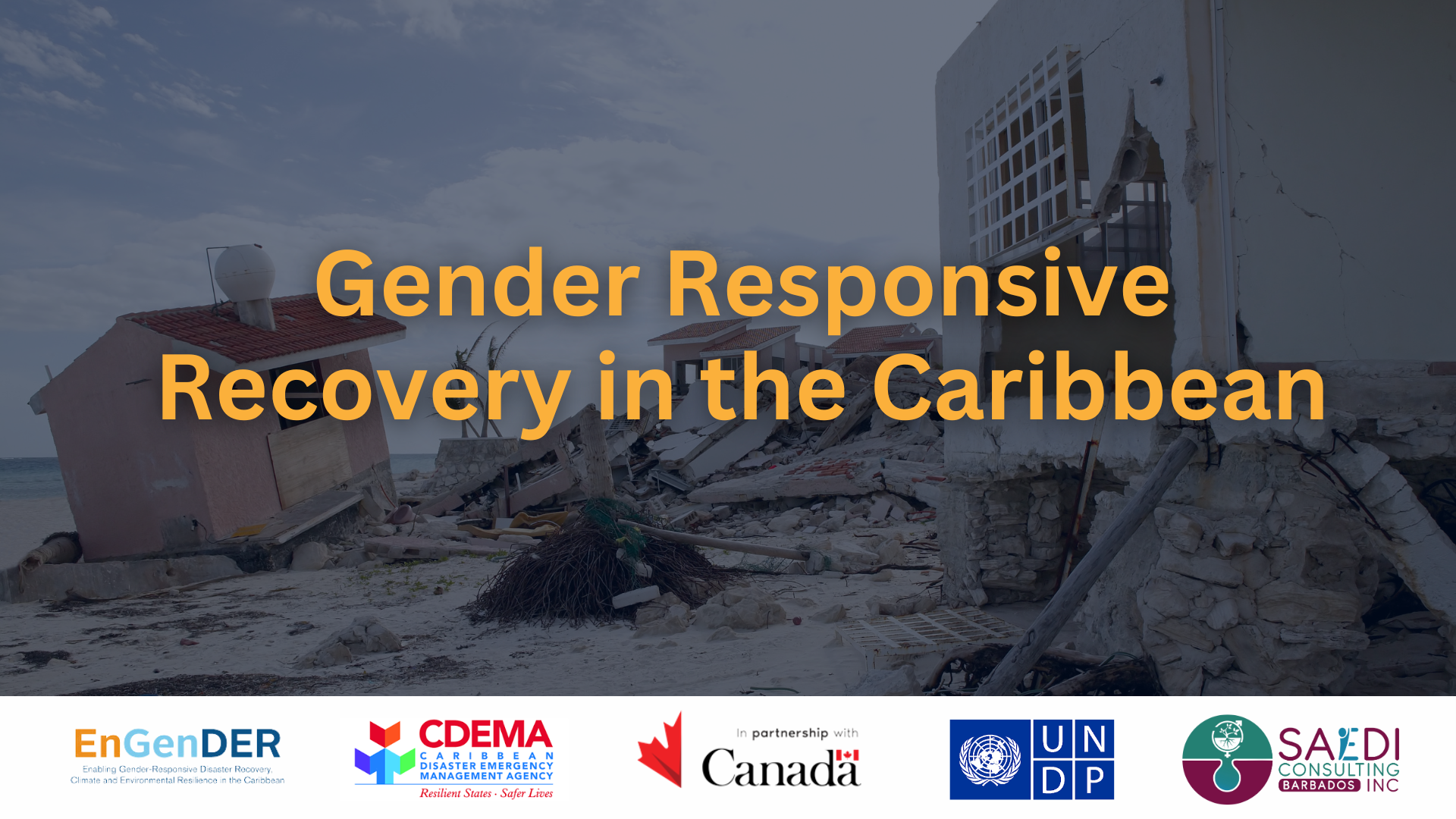
1 Courses

Strategic Programme Management for CDM
Gender-Responsive Recovery
Gender Responsive Recovery in the Caribbean
This course seeks to strengthen the capacity of disaster management practitioners and partners to integrate gender equality, women’s empowerment and social inclusion into recovery planning, operations and implementation in the Caribbean. The intended beneficiaries of this course are multiple and will form an eclectic mix in a best and future-fit for the adaptive context in which recovery of occurs. The group includes disaster managers, NGOs/CSOs, the private sector, day-to-day decision-makers as well as at-risk groups and their representatives and influencers/opinion-leaders. Finance and gender actors are also particularly targeted as participants for this course to also encourage thematic peer-to-peer learning. One of the key approaches to building total knowledge across the entire course will be spaced repetition of key concepts.
There are 5 Modules and 10 Lessons in this course.
This course has five (5) main learning objectives:
- Help participants i.e. practitioners enhance their understanding of why gender is relevant and key to disaster risk reduction as well as recovery;
- Capacitate users in identifying strategic and practical gender needs driven by vulnerability to disaster and climate risks;
- Aid participants to differentiate between types of social and gender risks arising in the context of disaster recovery and strategies to address them proactively and sustainably;
- Build capacity to efficiently and effectively map out pathways from response to recovery and from recovery to resilience minimizing bias and discrimination; and
- Strengthen skills to collaborate effectively across government agencies and with NGOs/CSOs in tackling the needs of marginalized, hyper-marginalized groups and at-risk populations.
Various learning strategies will be employed including concept mapping, lectures, knowledge checks, quizzes, didactic questioning, storytelling, case studies, reading for meaning, problem-solving, project-based/intervention learning and brainstorming. Materials will be presented in various formats including video clips, voice/audio clips, quotes from stakeholders and stories that ground and humanize the lived reality of the intended beneficiaries of recovery efforts.
The checklists developed as part of the same consultancy cover multiple topics including general gender mainstreaming, stakeholder engagement, vulnerable groups, gender-based violence and sexual exploitation, abuse and harassment. The Vulnerable group checklist has a general component and then specific checklists for key groups such as Persons with Disability, Indigenous and Tribal Peoples, Migrants and LGBTQIA+. These are used extensively to support uptake of the complex themes, concepts and good practice included in the course materials.
At the end of each module is an assessment of approximately 15 questions that provides a critical knowledge and learning check as well as connects materials across lessons and sets the foundation of upcoming modules and lessons.
We hope that you will enjoy this Gender journey via the modules and will see linkages to and with other trainings available under the Regional Training Center and beyond as well as with previous gender trainings you may have been part of.
